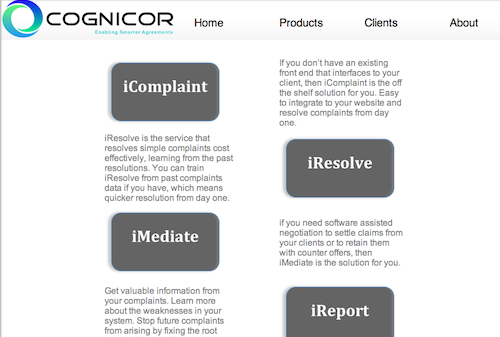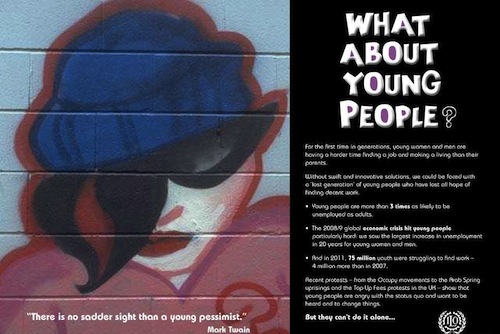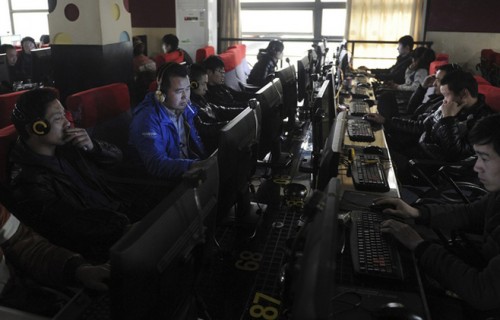> Alyunaniya.com is the ultimate source of information on Greece and the Arab world for a global audience.
> It is also a source of news for the Arab Greek community as regards developments in Greece, North Africa, Middle East and beyond.
> It presents news in a fair way, providing a balanced coverage and high-level analyses written in a jargon-free, reader-friendly style.
> It is an independent media outlet that is not under the influence of any power or interest group.
> Private ownership and advertising revenue allows the website to maintain an unwavering level of independence.
> Alyunaniya.com team monitors regional and international sources and generates awareness and the widest possible alertness, the key elements of 21st century citizenship.
We are a cyber company. In the first stage of growth, we rely primarily on telecommuting. More plans are on the way, for which we will keep you posted.
> Our Editorial Philosophy
Greece is about to change. The Arab World is in transition. Attempts to reform the social, political and economic context are already happening. Unfortunately violence is still present. Inequalities, lack of freedom, social rights and free will are still evident in many cases.
Despite the differences between the dominant West and the Arab World, even the most conservative observer acknowledges peace, freedom and self-determination as core values of all peoples. Either they live on the West, East, Arab world or sub-Saharan Africa.
The right to life and self-determination are not subject to religious or social conventions.
If you run a survey amongst school children and make them draw the Globe, their view of the world would make them place their country in the middle. Around it, they would build the neighborhood, superpowers and other friendly or hostile foreigners. Later, when they become adults, some children continue to view the world in an ethnocentric way. Either they live in Greece and the Mediterranean or elsewhere.
On the other hand, it is not fruitful or wise to ignore grassroots values and history. This is the way we view the world, our perspective and prism through which we translate and categorise developments. This is a necessity in today’s world of money and messages.
At the same time, globalising information and communication technologies pushes things to the opposite direction. Transparency and accountability are key parametres of the second phase of internet growth that lines up with social networks. The mix is dynamic and challenges old categorisations and stereotypes, which along with financial interests ignite today’s fighting amongst peoples. The Arab world is a field of change that turns these considerations into opportunities, but also threats.
Alyunaniya.com does not intend to pick sides; we like to keep our balance in the way we view things.
We will cover developments, views and peoples’ concerns in the most neutral way. What we primarily wish for is to monitor change. After all, this is what the journalism business is all about: To locate, examine and present change in politics, the economy and society at large.
Stay connected with us. LIKE our Facebook Page, Follow our Twitter activity; use the Contact form to communicate with us directly.
*
History note: The ancient people of the Middle East referred to the Hellenes as Yunan, deriving from Persian Yauna, itself a loan of Greek Ionia, the western coast of Asia Minor…
> Our Principles
We subscribe to the following “Principles of Journalism” (adopted from journalism.org):
1. Journalism’s first obligation is to the truth: Democracy depends on citizens having reliable, accurate facts put in a meaningful context. Journalism does not pursue truth in an absolute or philosophical sense, but it can -and must- pursue it in a practical sense. This “journalistic truth” is a process that begins with the professional discipline of assembling and verifying facts. Then journalists try to convey a fair and reliable account of their meaning, valid for now, subject to further investigation. Journalists should be as transparent as possible about sources and methods so audiences can make their own assessment of the information. Even in a world of expanding voices, accuracy is the foundation upon which everything else is built – context, interpretation, comment, criticism, analysis and debate. The truth, over time, emerges from this forum. As citizens encounter an ever-greater flow of data, they have more need -not less- for identifiable sources dedicated to verifying that information and putting it in context.
2. Its first loyalty is to citizens: While news organizations answer to many constituencies, including advertisers and shareholders, the journalists in those organizations must maintain allegiance to citizens and the larger public interest above any other if they are to provide the news without fear or favor. This commitment to citizens first is the basis of a news organization’s credibility; the implied covenant that tells the audience the coverage is not slanted for friends or advertisers. Commitment to citizens also means journalism should present a representative picture of all constituent groups in society. Ignoring certain citizens has the effect of disenfranchising them. The theory underlying the modern news industry has been the belief that credibility builds a broad and loyal audience, and that economic success follows in turn. In that regard, the business people in a news organization also must nurture -not exploit- their allegiance to the audience ahead of other considerations.
3. Its essence is a discipline of verification: Journalists rely on a professional discipline for verifying information. When the concept of objectivity originally evolved, it did not imply that journalists are free of bias. It called, rather, for a consistent method of testing information -a transparent approach to evidence- precisely so that personal and cultural biases would not undermine the accuracy of their work. The method is objective, not the journalist. Seeking out multiple witnesses, disclosing as much as possible about sources, or asking various sides for comment, all signal such standards. This discipline of verification is what separates journalism from other modes of communication, such as propaganda, fiction or entertainment. But the need for professional method is not always fully recognized or refined. While journalism has developed various techniques for determining facts, for instance, it has done less to develop a system for testing the reliability of journalistic interpretation.
4. Its practitioners must maintain an independence from those they cover: Independence is an underlying requirement of journalism, a cornerstone of its reliability. Independence of spirit and mind, rather than neutrality, is the principle journalists must keep in focus. While editorialists and commentators are not neutral, the source of their credibility is still their accuracy, intellectual fairness and ability to inform – not their devotion to a certain group or outcome. In our independence, however, we must avoid any tendency to stray into arrogance, elitism, isolation or nihilism.
5. It must serve as an independent monitor of power: Journalism has an unusual capacity to serve as watchdog over those whose power and position most affect citizens. In the old days, this was recognized as a rampart against despotism when an independent press was ensured; courts have affirmed it; citizens rely on it. As journalists, we have an obligation to protect this watchdog freedom by not demeaning it in frivolous use or exploiting it for commercial gain.
6. It must provide a forum for public criticism and compromise: The news media are the common carriers of public discussion, and this responsibility forms a basis for our special privileges. This discussion serves society best when it is informed by facts rather than prejudice and supposition. It also should strive to fairly represent the varied viewpoints and interests in society, and to place them in context rather than highlight only the conflicting fringes of debate. Accuracy and truthfulness require that as framers of the public discussion we not neglect the points of common ground where problem solving occurs.
7. It must strive to make the significant interesting and relevant: Journalism is storytelling with a purpose. It should do more than gather an audience or catalogue the important. For its own survival, it must balance what readers know they want with what they cannot anticipate but need. In short, it must strive to make the significant interesting and relevant. The effectiveness of a piece of journalism is measured both by how much a work engages its audience and enlightens it. This means journalists must continually ask what information has most value to citizens and in what form. While journalism should reach beyond such topics as government and public safety, a journalism overwhelmed by trivia and false significance ultimately engenders a trivial society.
8. It must keep the news comprehensive and proportional: Keeping news in proportion and not leaving important things out are also cornerstones of truthfulness. Journalism is a form of cartography: it creates a map for citizens to navigate society. Inflating events for sensation, neglecting others, stereotyping or being disproportionately negative all make a less reliable map. The map also should include news of all our communities, not just those with attractive demographics. This is best achieved by newsrooms with a diversity of backgrounds and perspectives. The map is only an analogy; proportion and comprehensiveness are subjective, yet their elusiveness does not lessen their significance.
9. Its practitioners must be allowed to exercise their personal conscience: Every journalist must have a personal sense of ethics and responsibility – a moral compass. Each of us must be willing, if fairness and accuracy require, to voice differences with our colleagues, whether in the newsroom or the executive suite. News organizations do well to nurture this independence by encouraging individuals to speak their minds. This stimulates the intellectual diversity necessary to understand and accurately cover an increasingly diverse society. It is this diversity of minds and voices, not just numbers, that matters.
















 Our Latest Tweets
Our Latest Tweets